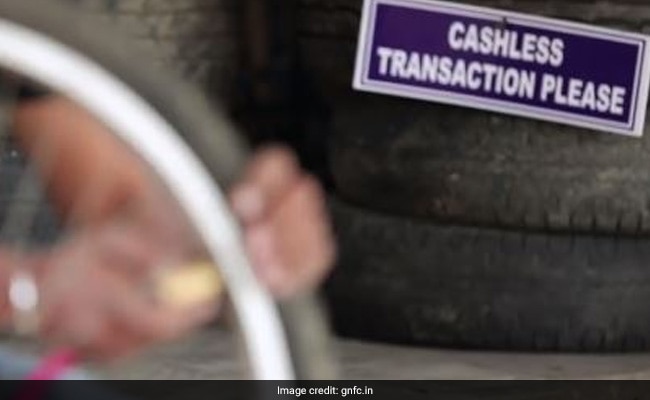New Delhi: In India's journey towards becoming a cashless economy, Prime Minister Narendra Modi has repeatedly urged not just individuals but organisations to go digital as well. Digital transactions help keep a trail of expenditures and taxes. Organisations going digital can also ensure that employees also adopt the cashless way and are further encouraged to go digital. The Gujarat Narmada Valley Fertilizers and Chemicals (GNFC) has been implementing this cashless vision. Not only has the organisation adopted a cashless method of functioning, but has also contributed in setting up cashless townships across several states.
GNFC has been committed to the cashless cause even before demonetisation had come into effect. The company firmly believed in going wholly cashless across all platforms for all of its transactions. In December 2016, Bharuch in Gujarat became India's first township to go completely cashless. In partnership with the Government of Gujarat, GNFC had setup the township in Bharuch which become one of the state's richest industrial belt. The belt was also characterised by high-speed broadband internet, Point of Sale (PoS) machines, Wi-Fi connectivity and e-bank corners which allowed people to access electronic bank terminals and conduct digital transactions.
The GNFC's Bharuch township saw successful operations, as the availability all forms of digital modes of cashless transaction were available. Following the success of Bharuch township, GNFC partnered with NITI Aayog, the Government policy think-tank, to develop more such townships across India, that would be completely cashless and not be dependent on any form of cash based transactions. GNFC identified 81 such townships which would be transformed into cashless or low cash townships. 56 of these were in Gujarat, and the rest were spread across 11 states in the country.
Within a period of 4 months, GNFC successfully transformed all 81 townships into fully functional cashless ones. These were launched by the Prime Minister on April 14. These townships are for both public sector companies such as Coal India Limited (CIL), Steel Authority of India Limited (SAIL), as well as for private companies such as Reliance, Essar, Aditya Birla Group and Welspun. The townships were developed in the states of Delhi, Gujarat, Uttar Pradesh, Madhya Pradesh, Maharashtra, Bihar and Chhattisgarh. GNFC has also been instrumental in working in the rural areas of Gujarat and implementing cashless schemes. A study by GNFC revealed that cashless transactions were highly helpful for the rural population, as it ensured saving of money on travelling to buy fertilisers, better handling of savings, more financial empowerment to women and control over expenses. Reduction of usage of cash also became a habit in GNFC aided low cash villages.
GNFC is also working with retailers of fertilisers in rural areas of Maharashtra, Gujarat and Madhya Pradesh to ensure that they are aware and well-trained on cashless transactions. Doing so would ensure that retailers are aware of how to handle PoS machines and sell fertilisers using cashless methods. Further, GNFC also announced that a discount of 5 per cent would be provided to farmers who buy GNFC fertilisers using cashless payment methods. A similar discount of 2.25 per cent would be provided to retailers selling in cashless mode.
With a comprehensive approach towards cashless method of payments and transactions, along with its cashless townships, GNFC is playing an important role in India's digitisation. It is a model that other companies can replicate to accelerate India's move towards digital finance.
Also Read: India Sees 55% Increase In Digital Transactions In A Year; Mobile Banking Jumps 122% 



